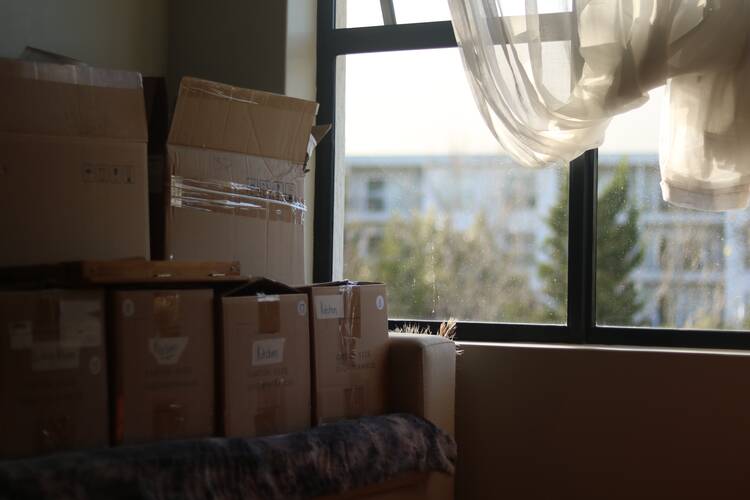A Reflection for Monday of the Second Week in Lent
Find today’s readings here.
“Stop judging and you will not be judged.
Stop condemning and you will not be condemned.
Forgive and you will be forgiven.” (Lk 6:37)
In the Gospel today, Jesus is brutally blunt. “Be merciful,” he says. “Stop judging….stop condemning…Forgive.” He doesn’t take a single moment to nod to the circumstances that actually make forgiveness hard, particularly the suffering that the other we are meant to forgive has put us through.
Jesus’ words make him sound severe and out of touch. Do you think we want to be sitting here still furious months or years later about what someone did to us, Jesus? Do you think we want to be thinking of them or of that moment anymore at all? We don’t. This anger that we can’t escape, that we can neither release nor be released from, it poisons everything. It sucks us dry.
But I wonder if there might be a good reason that Jesus is as direct as he is, as uninterested in the specifics of our experience as he seems. Maybe he saw them as part of the trap we’ve fallen in.
An aside that isn’t: In my life I’ve moved quite a few times. Not including my moves during college, I’ve changed my permanent residence 15 times. If I include summer assignments or times I was sent to work away from home for a month or more, that number probably doubles. (Realizing all of this is actually kind of depressing!)
Every time I’ve moved, I’ve had to consider what I own all over again. What do I really need? What can I get rid of? And one thing I’ve learned is that any time I stop to actually consider a book, an object, a knick-knack I am inevitably going to keep it. I’ll start remembering why I have it in the first place, some personal experience that it reminds me of (or in some way embodies), and then there’s no way I’m getting rid of it.
At some point we have to take the bad experiences that continue to fester in our lives, put them in a box and leave them on the street with the other garbage. You don’t talk yourself into doing that; you just do it. It’s the only way.
The only way that I know to get rid of anything is to not think about it. I have to look at an object, make a judgment and move on.
In my experience, resentments and old wounds are often similar. If I stop to think about why I am still so angry at this person or that place, even if I’m doing so as part of an attempt to finally get past those feelings, usually instead I end up feeling only reconfirmed in my resentment. Yeah, that guy—he was terrible, and he got away with it.
It’s pretty nearly impossible to forgive someone when you’re in that space. It feels like capitulation, or worse, like you’re participating in the harm that’s been done to you.
And maybe that’s the trap that Jesus is trying to avoid by being so direct. It’s not that he doesn’t appreciate our suffering or the injustices that we’ve experienced. It’s that he knows that digging into them will only reinforce our imprisonment. At some point, if we want to be free, we actually have to stop relitigating what happened, no matter how bad it was or how confused it has left us. (An aspect of being mistreated that doesn’t get talked about nearly enough is the degree to which it rattles our sense of reality and self. We even turn on ourselves and try to justify other people’s cruelty as our fault, just so that we can make it comprehensible.)
I think what Jesus might be saying in the Gospel is that at some point we have to take the bad experiences that continue to fester in our lives, put them in a box and leave them on the street with the other garbage. You don’t talk yourself into doing that; you just do it. It’s the only way.
Honestly, I still don’t know how I feel about forgiveness being issued as a command like this. It still seems cruel and unrealistic. It still feels in the abstract like I’m giving the villains of my life another win.
But staying angry is definitely not a life worth living either.








